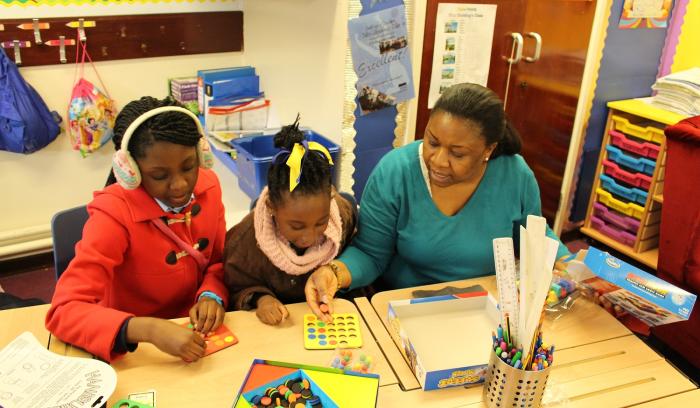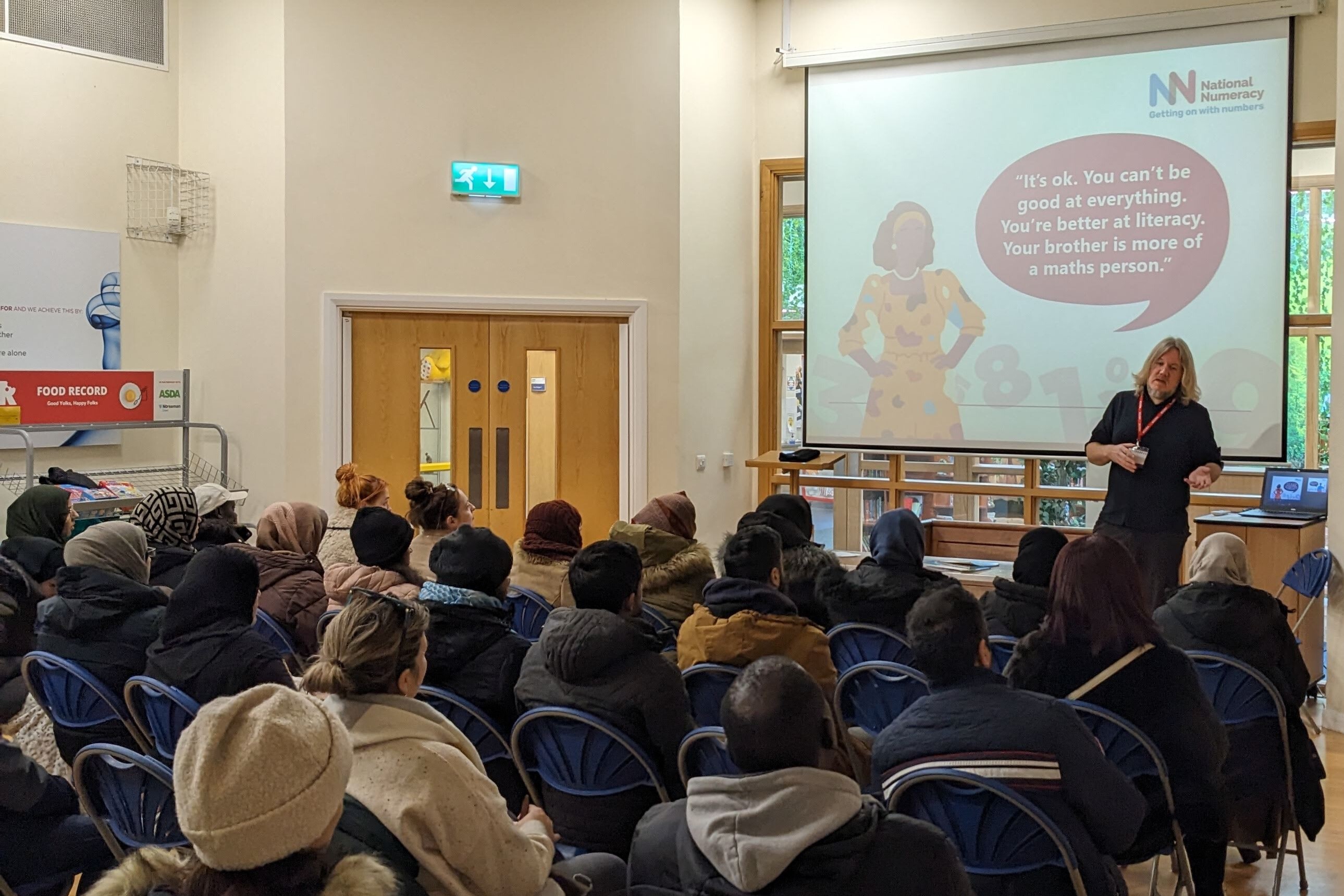Other resources
Find some other resources to help families engage with maths together.
Engaging parents and carers with their children’s education leads to raised attainment at school. It can also improve children’s behaviour and school attendance.
In primary schools, family influences have a bigger impact than school on children’s attainment. And the research shows that children are more motivated to learn about maths when their parents talk with them about the numeracy in everyday life.
So engaging families in their children’s maths learning can reap big rewards.
Find out more about National Numeracy’s Schools & Families programme for primary schools
Use National Numeracy’s parental engagement audit tool to start planning your school’s approach.

“Parents who are viewed as ‘hard to reach’ often see the school as ‘hard to reach’.” – Engaging Parents in Raising Achievement: Do Parents Know They Matter?, Professor Alma Harris and Dr Janet Goodall, 2007
National Numeracy works with primary schools across the UK to support families, so that pupils feel more positive about maths, and have greater awareness of the value of value of numeracy.
We also work with schools to increase parents’, carers’ and school staff’s own confidence with numbers, aiming to establish lasting approaches and strategies which can continue in the years following the programme.
